"In Various Spiritual Workshops, There Are Influences of Idol Worship"
Rabbi Assaf Moshe Biller was born to a secular family, but a spiritual quest that included many visits to the Far East brought him to the embrace of Judaism. An intimate interview.
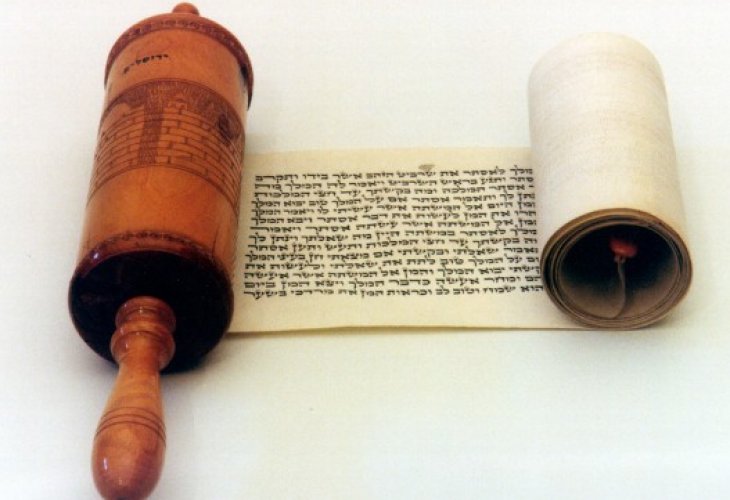
Evening time, the Muslim cemetery located in the heart of the town Arabe near Sakhnin. Two Chassidim, recent returnees to Judaism, dance and pray at the grave of the Tanna Rabbi Hanina ben Dosa, lighting more and more soul candles between chapters of Psalms and rounds of dances, with small tears in their eyes and big butterflies in their stomachs.
Exactly three weeks earlier, also in the evening, concern in the Biller household for their infant daughter's well-being was growing and intensifying. If only they had known that very soon the picture would change. "When my wife and I returned from one of our trips to the Far East, we moved to a small kibbutz called Lotem in the Misgav region of the Galilee," says Rabbi Assaf Moshe Biller (46), married and father of five, residing in the settlement Or HaGanuz near Meron.
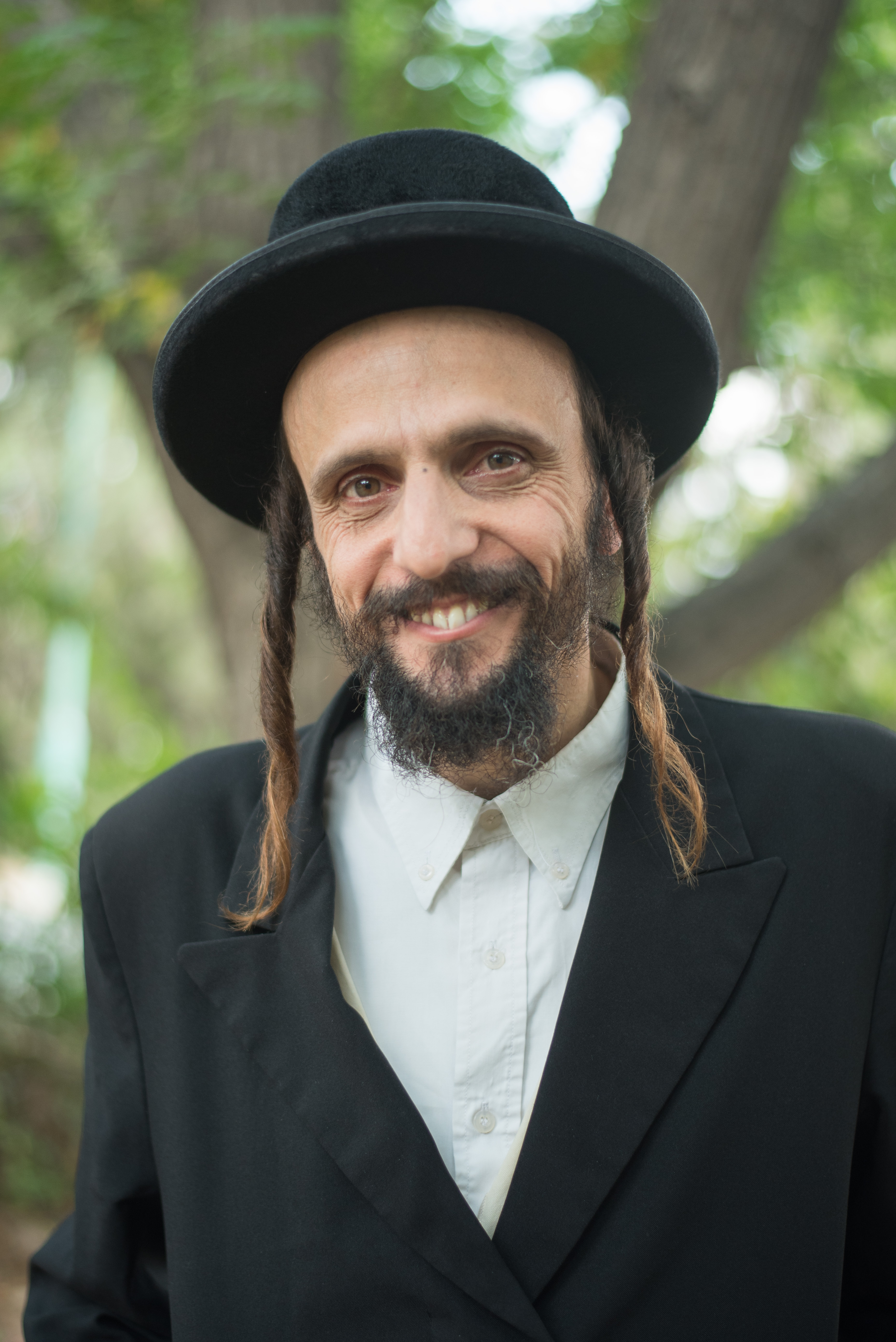
The Ba'al Teshuva Wave—in Kibbutz Lotem
Today, Rabbi Biller devotes almost all his time to Torah study and bringing people closer to Judaism. He also serves as the head of the "Or HaGanuz" Yeshiva for returnees to Judaism and as the director of the Jewish-oriented yoga teacher training program at Ilima College. However, during their time in Lotem, the rabbi and his wife were just beginning their journey into the world of Torah, as the rabbi himself testifies. "Lotem is a secular kibbutz with many vacant apartments. In the past, the apartments were used by the kibbutz's young members, but they left.
"Because there were many vacant apartments, the price was low, which suited the guys who had just returned from the East. Gradually, a community was built there. Over time, more and more couples we knew arrived, and then also friends of friends, and suddenly we realized that quite a few people who had returned from long journeys around the world had gathered in Lotem. And there, particularly in Lotem, we began to truly strengthen in Torah and mitzvot.
"What's mainly interesting about this story," Rabbi Biller adds, "is that a very strong wave of return to Judaism simply started there. Something hard to explain. Family after family returned to Judaism. I estimate that about 16 families returned to Judaism in a very short time. After that happened, we built a synagogue there, and the environment became more suitable for the processes we went through.
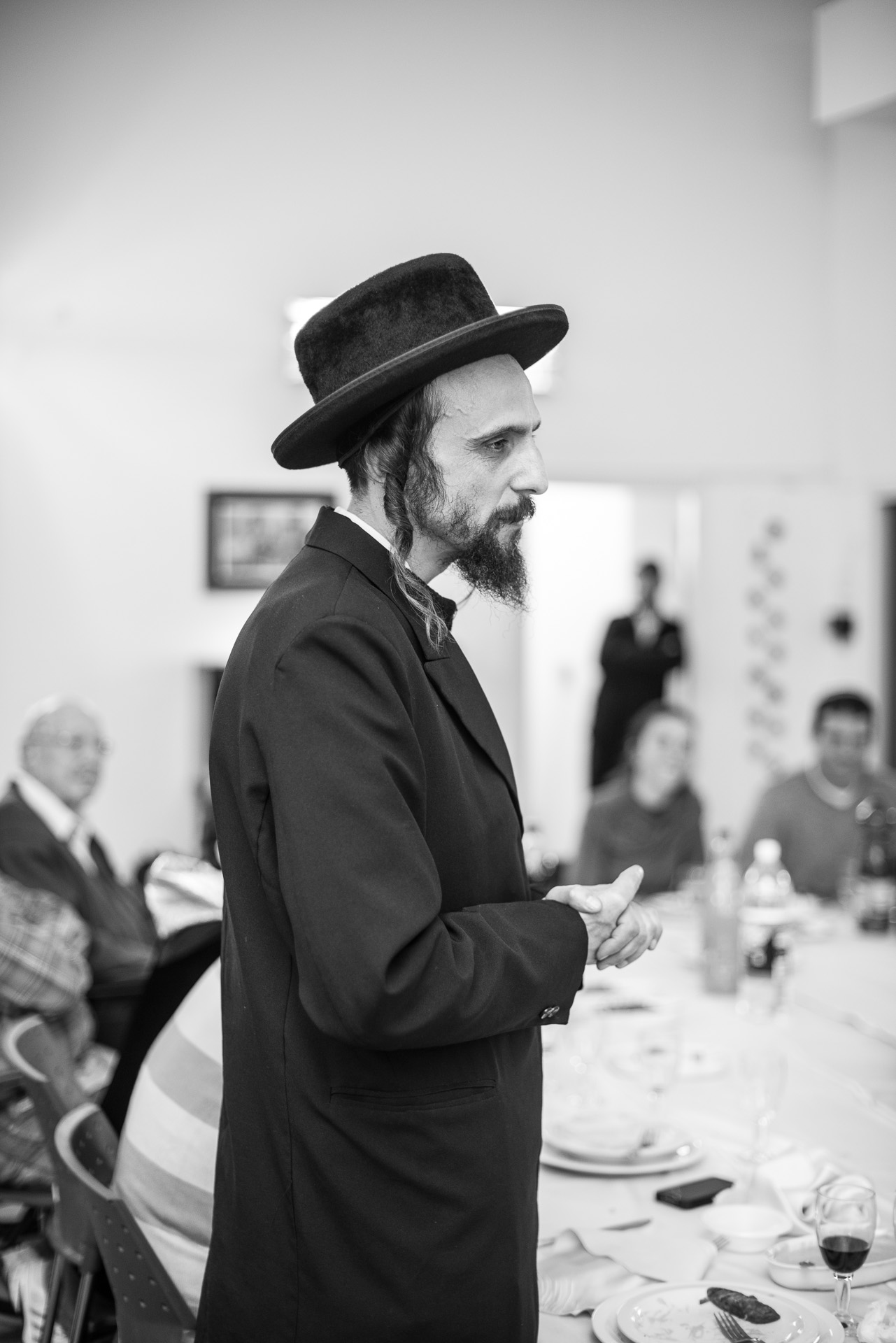
"But amid all this, we often wondered how it happened. How did so many people come to Lotem, and how did so many who came return to Judaism? Today, I think that perhaps we received a response because of what happened to our baby girl. When our youngest daughter was just three months old, she became ill. At first, it was only coughing and vomiting, and we thought it was something that could happen and would surely pass after two or three days.
"After four days, severe vomiting began, and it became much more frightening. Beyond the vomiting, she also appeared as if she were fainting. Limp limbs and closed eyes. We immediately traveled to the hospital in Tiberias, and there they began treating her and examining her condition. After a few hours, one of the doctors told us they had no idea what she was suffering from. They didn't know what it was. The child was still fainting, but night had fallen, and they told me to go home and return in the morning.
"I returned home but couldn’t sleep due to stress and anxiety. I prayed to Hashem for her, and in the process, I recalled learning that it's good to pray for the merit of the righteous, as the righteous elevate the prayers. We had a book about the graves of the righteous in the Galilee. I decided to open the book at random, choose a righteous person whose grave I found, and pray for her there. I promised that after everything was resolved, with G-d’s help, I would go pray and offer thanks at his grave."
According to Rabbi Biller, the book opened to the page about Rabbi Hanina ben Dosa, with even a saying of his included. "The book stated that Rabbi Hanina would say about himself that he prayed particularly for the sick and that he would know in real-time if his prayer was accepted. If the prayer flowed smoothly from his mouth, it was a sign that it had been accepted. I was very pleased with the divine providence, landing exactly on a righteous person who said about himself he prayed for the sick. I prayed, lit a candle, and closed the book.
"The next morning, I called the hospital, and they said they had transferred her to another hospital because they couldn’t figure out what she had. In the second hospital, thank G-d, within two hours, they identified the problem, gave her medication, and she returned to herself. The child was really in danger, but thank G-d, she was saved thanks to the prayers.
"After everything ended, I told my wife what had happened and said that now it was my turn to fulfill my part and go pray at the grave of the righteous. I didn’t know where he was buried because that night I was very excited and didn’t delve into the additional details in the book. When I opened it, I saw he was buried in the village of Arabe, which was just meters away from the home that was ours at the time.
"Even though his grave is in a Muslim cemetery, deep in an Arab village, promises need to be kept. Incidentally, Arabs respect our righteous people, so they want to be buried near them. So, I took a friend, we went there, prayed, and lit candles. To this day, I think perhaps the great return to Judaism in Lotem was due to Rabbi Hanina, who is buried nearby. In any case, after three years, we left Lotem and moved to Or HaGanuz."
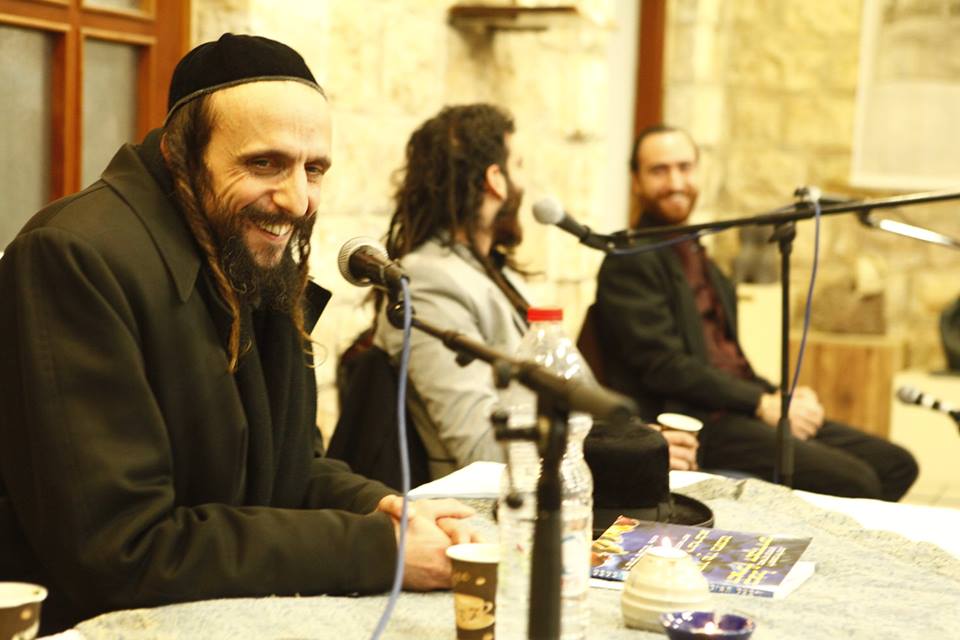
The Power of Silence
In the world of returning to Judaism, two main approaches concern the issue of publicizing past life events and engaging in them. Some believe balanced engagement with the past can primarily be positive and strengthening, while others argue it's better to avoid it completely. Rabbi Biller's rabbi, and the rabbi of Or Haganuz as a whole, belongs to those who prefer to avoid this engagement, so we will note here only a bit of his intriguing life before returning to Judaism.
"I was born in Jerusalem to a secular family. I went through the standard route, more or less, and did my military service as a fighter in the Nahal Brigade. After the army, I spent a long period in the Far East, where I was exposed to various methods of introspection, inner work, meditation, and the like.
"From a relatively young age, I was interested in spiritual searching, yoga, and working on the soul and character traits. I was exposed to the teachings of Rabbi Yuval Ashrov at 28 and began to delve deeper into studying and drawing closer to Judaism. I met my wife at an early age. We married at 23, were in the East together, and also strengthened together. Initially, we began attending Rabbi Yuval's lectures, then going to seminars of Arachim, and quite soon, we decided to move to Or HaGanuz.
"We were both very enthusiastic and wanted this," says Rabbi Biller. "And each one encouraged the other. In those years, I primarily studied at a kollel in the settlement and worked at Ilima College, which Rabbi Yuval established in our settlement, dealing with natural medicine. Within all of this, one of the strongest tools I learned in the East was the power of silence. I was exposed there to silence workshops, which were, in fact, ten very intense days of inner introspection."
According to Rabbi Biller, he had an inner desire to take things he previously knew, use them in a pure and correct manner, and derive benefit from them in his current world. A perspective of "Wisdom among the nations, believe it." Moreover, he says, there is supreme importance in providing a correct and Torah-oriented alternative to people engaged in spiritual searching and seeking workshops in this field, ensuring they do not receive negative elements present in various methods that don’t stem from the holy Torah.
"When I began returning to Judaism," Rabbi Biller recounts, "I saw many people, young and old, religious and not, looking for these things and going, for example, to Vipassana workshops. Many don’t know, but in these workshops, there are influences of various kinds of idol worship. The more I delved into the Torah, the more I saw there's a vast wealth of methods for introspection and inner spiritual work.
"Suddenly, I realized that many, many Jews are looking for this experience in Israel and abroad. People want to disconnect from the noise of life, isolate themselves, and understand what they truly want in their lives. To think calmly about the direction they want to take. To get to know the inner movement of their thoughts. And because there is nothing like this within Judaism, they go astray in foreign fields.
"When I got into this more seriously, I realized there's a great demand for these workshops. There are workshops where you have to wait four months to participate. And it hurt me deeply that so many people go there because they could find these things excellently within the Torah and sanctity. But they don’t even know it’s possible, and these workshops draw them away from Judaism. Instead of their spiritual awakening leading them to the holy Torah, it leads them to not good places. They settle for a spiritual search that gets stuck halfway.
"So we picked up the gauntlet, and together with a few friends, we established this thing. Currently, thank G-d, there is a kosher silence workshop lasting six days, where all participants’ needs are taken care of, including, of course, food and lodging. Whoever comes can completely disconnect from the race, the troubles, the work, the family, and truly be in complete silence.
"We consulted with our rabbi, and he advised us to conduct this workshop only once a year. And that is indeed what is happening. Everything taught there is 100% from Judaism, held for one week during the month of Elul. We decided to do it in Elul because it is a favorable time for introspection and repentance."
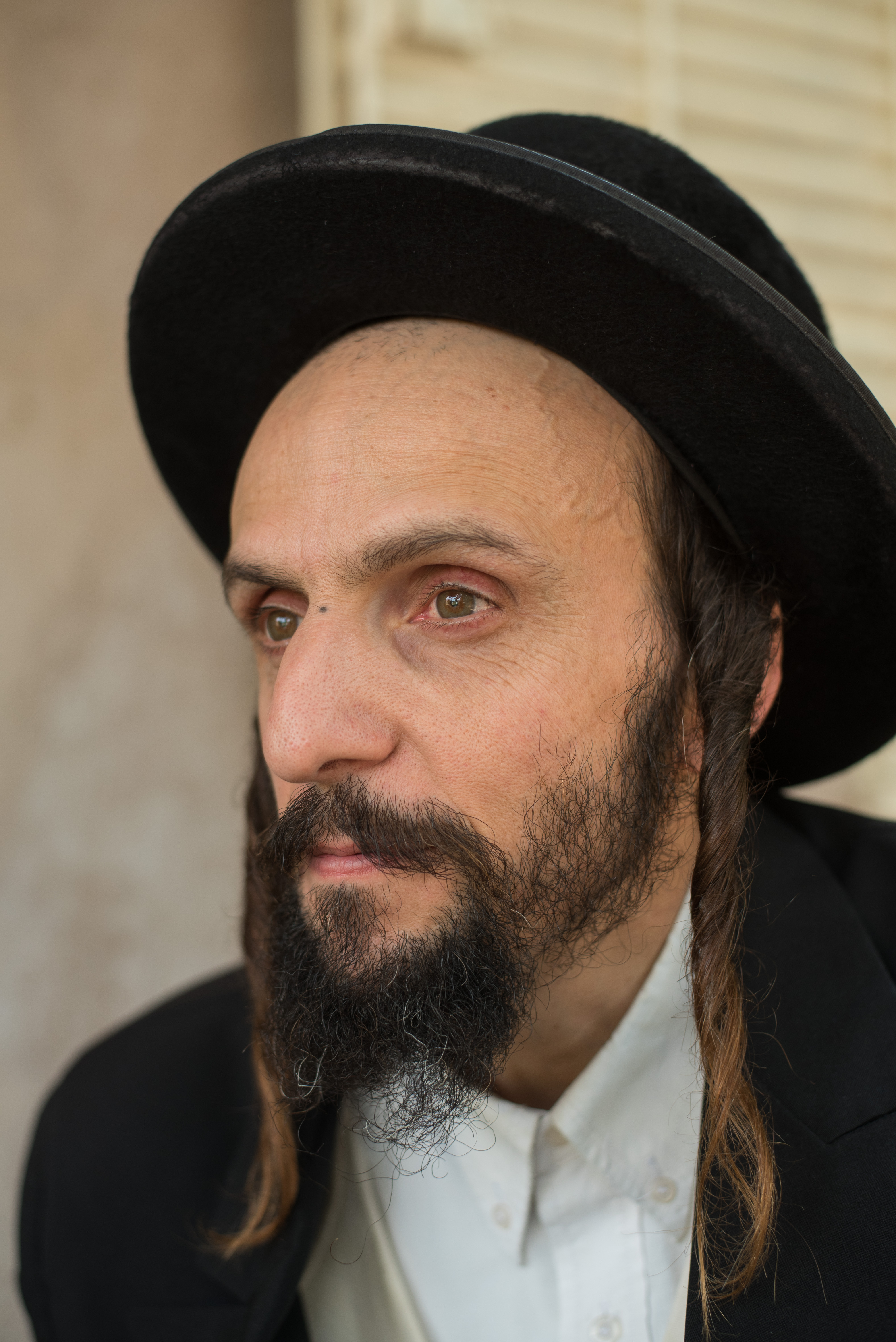
A Rare Opportunity for Healing
Naturally, the more the conversation about the workshop lengthens, the more my curiosity about what happens during it increases. A Jewish silence workshop is a special and intriguing matter, and indeed, Rabbi Biller's words shed bright light on it. "On the first day, workshop participants hand over their cellphones to us, and we all commit to silence. The workshop starts on Sunday and ends on Friday, and during the workshop, we don’t speak any words outside of prayers and blessings.
"Throughout the day, there are activities from morning till night. Movement classes, relaxation, breathing, yoga in the spirit of Judaism, and more. In parallel, there are hours where we sit in silence, and we guide people on what and how to think. Everything is entirely Torah-based and drawn from the sources. We do introspection in Hashem's name, work on character traits, and so on. The material is drawn from the holy writings of the Tanya, the Ramchal, the Admor of Piasetzna, and more.
"In the afternoon, there is a trip for seclusion in nature, all accompanied by Jewish sources. For example, in this part, we teach what the Rambam says about how through contemplation of nature, one can reach inner contemplation, and from there, thoughts of the Creator. Beyond that, during the workshop, we also guide people to prepare for prayer and teach how to strengthen prayer work through focused thoughts.
"Moreover, before meals, we do introspection on the topic of eating, which elevates it greatly. The fact that everything is done in silence actually gives the participant a strong ability to delve inward, into themselves. They don’t need to respond to the environment. What happens after a few days without speaking is that the thought can calm down, and they begin to expose themselves to the inner silence. It's something very powerful and unique."
Do people participating in the workshop report difficulties as well?
"There is a fast of speech and a pleasure of silence. During the first one-two days, silence is very difficult. People miss communication, and indeed, at the beginning, it feels like a fast. But by the third day, everything usually turns around. The person transforms from a speaking person to a silent person. And then there is immense enjoyment of the silence. People find the depth in the silence, and its beauty and light. These things are so powerful that many times people want to continue remaining silent even after the workshop is over, even though once they start speaking, it's impossible to stop the flow."

